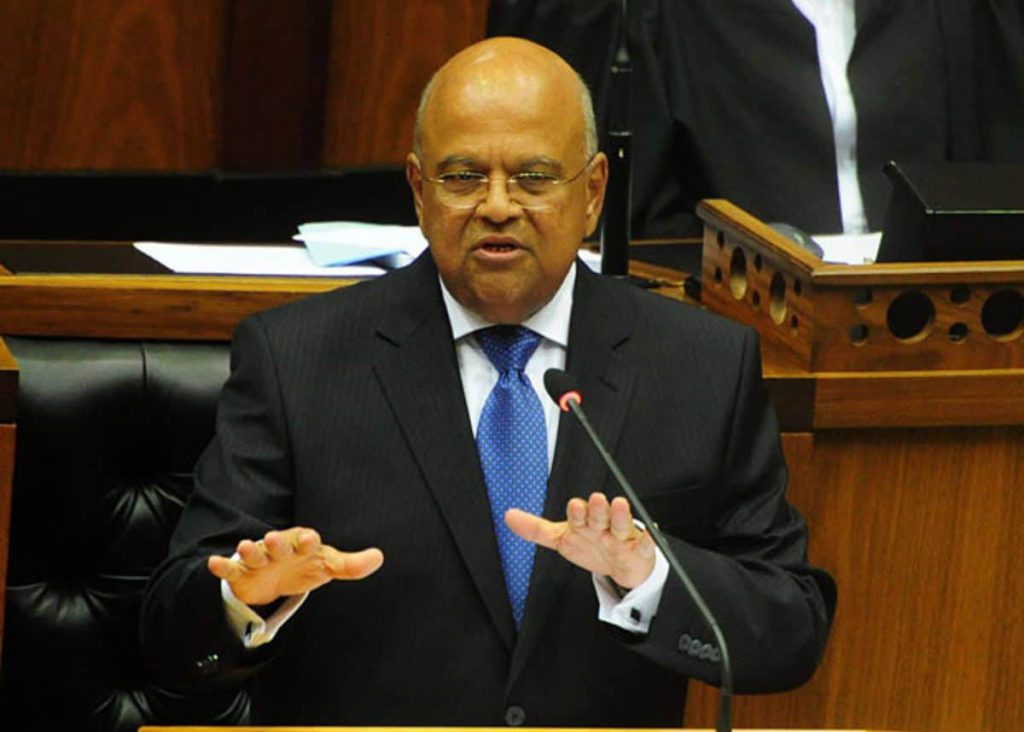Empowerment Government & Politics
Irregular Vs Fruitless And Wasteful Expenditure
Public Enterprises Minister Pravin Gordhan recently found himself in the unenviable position of having to ask the Speaker of Parliament for an extension for three major state-owned enterprises (SOEs) under his jurisdiction — South African Airways, SA Express and Alexkor — which failed to table their annual financial statements by the 30 September deadline as required by the Public Finance Management Act (PFMA).
This was a damning reflection of the shocking state of the finances of not only the delinquent trio, but of the vast majority of the country’s public sector entities. Things are so bad that SAA has not been able to produce financial statements for the past two financial years because it is not a going concern.
While the woes at the national carrier were unfortunately unsurprising, it was a shock when the Auditor-General (AG) flagged about R98-million in irregular expenditure at South African Tourism.
The most recent review of SOEs by Auditor-General Kimi Makwetu revealed that irregular expenditure at SOEs reached a staggering R86.2-billion in the 2018/19 financial year, up sharply from R31.4-billion in the 2017/18 financial year.
A huge chunk of that was due to state-owned freight, rail and ports entity Transnet’s irregular spending hitting R49-billion this year. Acting CEO Mahommed Mahomedy noted when its report was released that around R41-billion of Transnet’s irregular expenditure related to controversial locomotive contracts going as far back as 2012. On a positive note, Transnet’s revenue grew by 1.6 per cent to R74.1-billion for its full-year to March as it desperately battled to recover from years of mismanagement and corruption.
“As we go through the state capture clean-up process, it is expected that irregular expenditure will increase (as a result of the additional scrutiny),” Mahomedy told a media briefing when Transnet released its results.
He said Transnet has enhanced its ability to identify and remedy new instances of irregular expenditure with the appointment of the Auditor-General providing additional oversight to complying with the PFMA.
“It is important to note that irregular expenditure is not the same as fruitless and wasteful expenditure,” he stressed. “In many cases, contracts are being delivered, but may not have followed the correct processes. The issue of irregular expenditure is peculiar to state-owned companies and organisations due to the PFMA. The private sector is not required to report on possible irregular expenditure.”
Sorry state of municipalities
The state of the country’s municipalities is equally woeful, with Makwetu saying that of the 257 municipalities and 21 municipal entities audited for the 2017/18 financial year, only 18 managed to produce quality financial statements and performance reports and comply with the key legislation to warrant a clean audit. The audit outcomes of 63 municipalities regressed while those of 22 improved. Only 19 per cent of the municipalities, Makwetu says “could give us financial statements without material misstatements” and the performance reports of 65 per cent of the municipalities had such material flaws that they were not credible enough to be used.
“The accountability for financial and performance management continues to worsen in most municipalities. The trickle-down effect of these failures on services has been glaringly evident over the years across many municipalities, evidenced by largely incomplete projects, unsupervised projects, lack of maintenance of significant service delivery infrastructure and haphazard road maintenance projects and infrastructure,” he said when releasing the municipal audit.
The role of financial services institutions
The country’s financial services institutions do extensive business with, and benefit handsomely from, their commercial relationship with SOEs and public sector entities, but the country’s major banks were coy about their role in stemming the finance rot in the public sector.
ABSA’s head of media relations, marketing and corporate relations, Phumza Macanda, says SOEs and public sector entities were “critical to South Africa’s development and the stability of state finances. “Rebuilding them should involve three spheres of work: restoring governance and sound management; work that is progressing well; and stabilising and improving their finances so they can effectively carry out their respective mandates. Long-term reforms should also be considered, including partial privatisation in line with government’s intentions that were reaffirmed several times over the last three years,” she says.
ABSA has the largest chunk of government business, including state arms manufacturer Denel. Denel’s finances this year were so perilous it was unsure whether it could pay salaries from month to month.
“We recognise that these entities are of strategic importance to the country and we can confirm that we support government’s initiatives to stabilise them. We have provided assistance, where possible, to help government achieve its objective of stabilising these companies, but are not in a position to comment further on the individual clients, as these are protected by confidentiality obligations,” Macanda says.
Standard Bank’s Ross Linstrom says the bank “will assess and manage each business interaction on sound business, credit and ethical principles.
“There are a few factors to be taken into account when assessing or interacting with a business in distress. These are ‘what are the reasons for the distress? Is the business substantially viable? is there a clear plan to turn the business around? Is there effective management? Is there shareholder support?’ We have been encouraged by the steady progress made around addressing some of the issues as they relate to SOES.”
Standard Bank ensures that “there is a balance between sound credit management in the interests of our depositors and shareholders versus our responsibility to support the recovery of South Africa’s economically essential SOEs. Some of these have additional systemic importance for South Africa, where any additional stress on the business would have wider implications for the economy. In these instances, a financial institution has to be sensitive to its role and have a voice as a stakeholder in the enterprise,” Linstrom adds.
He says that among the SOEs “there are those that are viable and we interact with them in the normal process of doing business”.
“Then there is the second category that is in financial distress, but hold no systemic risk. Here it is not up to a financial institution to ensure that the business continues as a going concern; that decision is in the hands of the shareholder. The third category the bank interacts with is those that are systemically important to South Africa. In these instances, Standard Bank would balance its responsibilities and ensure that its response does not undermine South Africa as a whole. Taken into consideration is, is government making progress with a turnaround plan or strategy? Should more conditions be attached? These are evaluated and balanced against any future interactions with the entity,” Linstrom explains.
Cas Coovadia, managing director of the Banking Association of South Africa, says that while banks naturally have credit facilities in place with public sector entities and apply stringent protocols before providing funding, they do not have any “direct intervention” in how they manage their finances.
“These institutions have their own boards and governance structures. Banks can’t play the role of their CFO. We’ve had numerous consultations with government where we’ve stressed that the private sector is prepared to provide capacity and help in whatever way it can. To date, there has been no uptake from government of our offer,” he explains.
Highly-skilled business leaders from the private sector, called upon to help save ailing SOEs, have abandoned ship in droves this year, frustrated at the culture shock of life in the public sector. To attract more talent from the private sector, the government needs to address key issues such as separating the roles between government boards and executives, Coovadia says.






 Sign-up and receive the Business Media MAGS newsletter OR SA Mining newsletter straight to your inbox.
Sign-up and receive the Business Media MAGS newsletter OR SA Mining newsletter straight to your inbox.